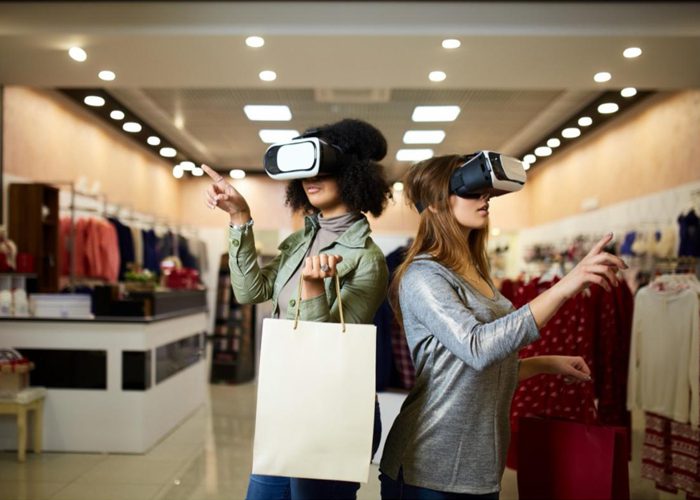SHOPPING has moved online and physical stores are dying in their thousands. But survival is possible – if brands embrace the power of tech to personalise the in-person experience.
Footfall in stores has been consistently declining over the past decade, and while COVID didn’t help, the main culprit is the boom of e-commerce. The industry has been digitally transformed by retail giants such as ASOS and Amazon, who make the prospect of driving to a shopping centre, paying for parking and walking through crowds to find a product far less enticing. (Not when there is a new box set on Netflix to enjoy.)
However, in-person stores are likely to make a comeback, says Adam Howarth, ACF’s Technologies’ retail expert. In fact, some brands are already starting to change their CX strategies and practices to revive their high-street presence. But how can they replicate the seamless experience of digital shopping that gives people the ability to purchase anywhere, anytime, at their fingertips?
They need to use tech.
“The main mistake retail brands make is sustaining a barrier between their online and in-person customer experiences – both should be frictionless,” explained Howarth.
Brands focus their efforts too much on refining a flawless digital shopping environment online – but totally neglect the CX potential their physical stores have to attract customers. The first feature that retail can lean into, is to offer choice.
“When you walk into a shop, you’re not sure you’re going to find what you need because things are stocked in a standardised way. Brands pigeon-hole customers,” said Howarth. The reality is that everyone has unique expectations entering a store – so personalising the experience and offering will provide an enticing shopping environment that customers would enjoy.
Retail brands should also be thinking out of the box. Some of the most successful high street stores have taken the emphasis away from selling their commodities, and replaced it with cultivating a brand experience – sometimes getting rid of stock altogether.
“Take Selfridges. You could spend the whole day in one of their stores and not buy any of the products they are famous for. There’s a cinema, a food court, an interactive tech aisle – they’ve taken those data points about what their customers like and have adapted how they market their products,” explained Howarth. By providing more choices in line with what customers actually want, brands are bringing the fun back to the high-street. And who doesn’t like a bit of fun?
This may seem like a hard task to achieve, but retail brands shouldn’t worry – delivering this level of personalisation isn’t as out-of-reach as you might imagine. Tech tools that can tap into these new customer expectations already exist, such as the software developed by ACF Technologies, which offers in-person CX strategies to be as seamless as online platforms.
“Tech software can bridge all the different systems and data points about customers, so that brands can have a broad view of what journey each customer is on. When you collate that all into an app, it creates a singular customer profile with all this information, and subsequently allows the brand to market products in a tailored way, as well as offer in-person choices individual customers would actually be interested in.”
This use of tech to blend the in-person and online experiences can go a step further. Using the same app, you can forget about long queues at checkouts – all you need is to pick an item off the shelf, scan the barcode on your phone and pay as you would any online purchase. “It’ll be like self-serving yourself at Tesco’s,” added Howarth.
Ironically, it’s data and tech that killed the high-street. Now it’s going to be its salvation.
